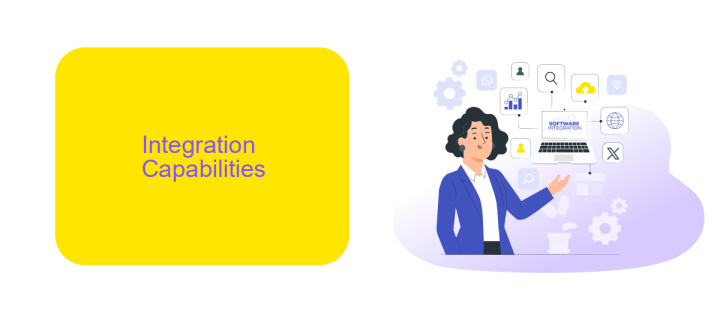Alloy Vs Zapier
When it comes to automating workflows and integrating apps, two popular platforms often come to mind: Alloy and Zapier. Both tools offer robust solutions for streamlining tasks, but they cater to slightly different needs and user bases. This article delves into the key differences between Alloy and Zapier, helping you decide which platform best suits your automation requirements.
Executive Summary
In the realm of automation and integration, choosing the right tool can significantly impact your business efficiency. Alloy and Zapier are two prominent platforms that offer distinct features for automating workflows. While both serve the same fundamental purpose, their capabilities and user experiences differ, making it crucial to understand which one aligns better with your specific needs.
- Alloy: Known for its robust data integration and customization options, ideal for complex enterprise-level tasks.
- Zapier: User-friendly with a vast library of pre-built integrations, perfect for small to medium-sized businesses.
- ApiX-Drive: A versatile alternative that provides seamless integration setup with an intuitive interface, catering to a wide range of business needs.
By comparing Alloy, Zapier, and ApiX-Drive, businesses can make an informed decision on which platform best suits their operational requirements. Each tool offers unique advantages, from Alloy's advanced customization to Zapier's ease of use and ApiX-Drive's balanced approach to integration management.
Integration Capabilities

Alloy and Zapier both offer robust integration capabilities, but their approaches differ significantly. Alloy focuses on providing a more developer-centric platform, allowing for intricate customizations and complex workflows. It supports a wide range of APIs, enabling developers to build highly tailored integrations. This flexibility makes Alloy a preferred choice for businesses with specific, nuanced requirements that necessitate a high degree of control over their integrations.
On the other hand, Zapier is designed with user-friendliness in mind, catering to non-developers who need to automate tasks without writing code. It offers a vast library of pre-built integrations, making it easy to connect various apps and services quickly. Tools like ApiX-Drive can complement both platforms by simplifying the integration process even further, offering a user-friendly interface for setting up and managing integrations. While Alloy provides depth and flexibility, Zapier excels in ease of use and accessibility, making it suitable for a broader audience.
Flexibility and Customization

When it comes to flexibility and customization in automation tools, both Alloy and Zapier offer robust solutions, but they cater to different needs. Alloy provides a more developer-centric approach, allowing for deep customization and complex workflows. This makes it ideal for businesses with specific technical requirements and the resources to manage them. On the other hand, Zapier focuses on user-friendly interfaces, enabling non-technical users to create automations quickly and efficiently.
- Alloy: Highly customizable, suitable for complex workflows.
- Zapier: User-friendly, ideal for quick and easy automations.
- ApiX-Drive: Bridges the gap by offering a balance of ease and customization.
ApiX-Drive stands out as a versatile alternative, providing a middle ground between the high customization of Alloy and the simplicity of Zapier. It allows users to set up integrations without coding, while still offering advanced features for those who need them. This makes ApiX-Drive a compelling choice for businesses looking for flexibility without sacrificing ease of use.
Pricing

When comparing Alloy and Zapier, pricing is a crucial factor to consider. Both platforms offer different pricing models that cater to various business needs, making it essential to understand which one aligns best with your budget and requirements.
Alloy typically offers a more flexible pricing structure, often tailored to the specific needs of your business. This can be particularly advantageous for companies with unique integration requirements. Zapier, on the other hand, has a tiered pricing model based on the number of tasks and integrations you need, which can be more straightforward but potentially more expensive for high-volume users.
- Alloy: Custom pricing based on individual business needs.
- Zapier: Tiered pricing starting with a free plan and scaling up based on usage.
- ApiX-Drive: Offers a variety of plans, including a free tier and scalable options based on the number of integrations and data volume.
Ultimately, the choice between Alloy, Zapier, and other integration services like ApiX-Drive will depend on your specific needs and budget. It’s advisable to explore each platform's pricing details and consider any additional costs that may arise from scaling your integrations.
Conclusion
In summary, choosing between Alloy and Zapier depends largely on your specific needs and technical expertise. Alloy offers robust customization and control, making it a preferred choice for businesses that require complex and highly tailored integrations. On the other hand, Zapier stands out for its user-friendly interface and extensive library of pre-built integrations, which can significantly reduce the time and effort needed to connect various applications.
For those looking to streamline their integration processes further, services like ApiX-Drive can be invaluable. ApiX-Drive provides an intuitive platform that simplifies the creation and management of integrations, making it accessible even for users with minimal technical background. Ultimately, the best tool for your business will depend on your unique requirements and the level of customization you need to achieve your integration goals.
- Automate the work of an online store or landing
- Empower through integration
- Don't spend money on programmers and integrators
- Save time by automating routine tasks
FAQ
What is the primary difference between Alloy and Zapier?
Which tool is easier to use for beginners?
Can I integrate my CRM with both Alloy and Zapier?
Are there any limitations on the number of integrations I can set up?
What alternatives exist if I find Alloy and Zapier too complex or expensive?
Routine tasks take a lot of time from employees? Do they burn out, do not have enough working day for the main duties and important things? Do you understand that the only way out of this situation in modern realities is automation? Try Apix-Drive for free and make sure that the online connector in 5 minutes of setting up integration will remove a significant part of the routine from your life and free up time for you and your employees.


